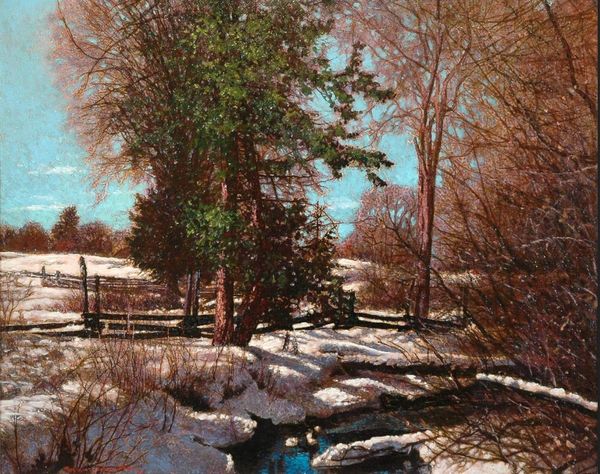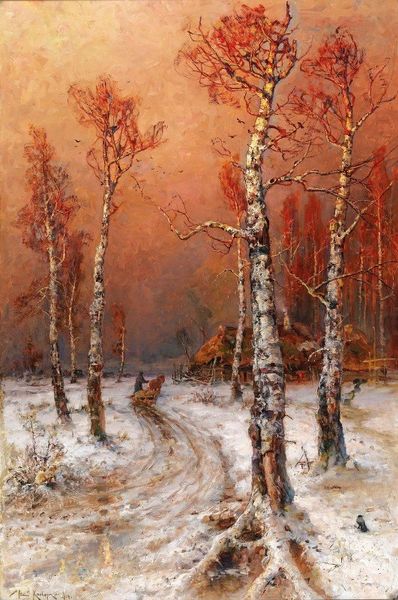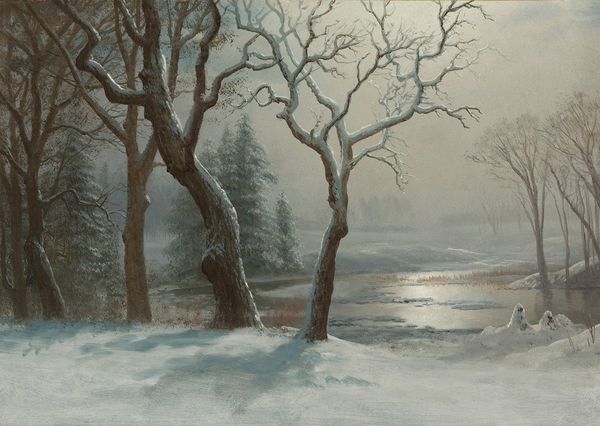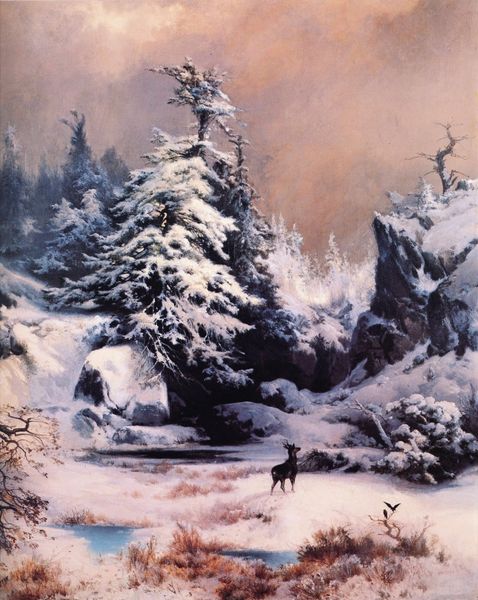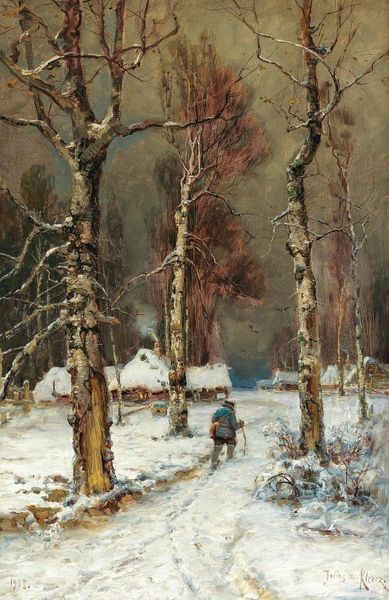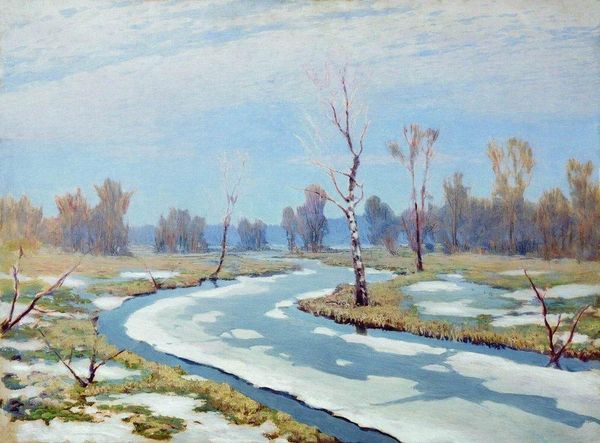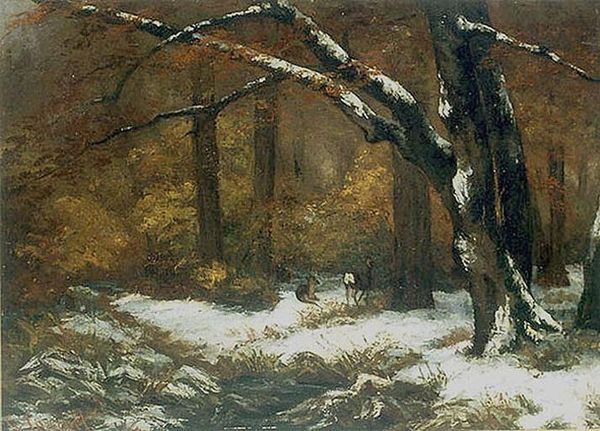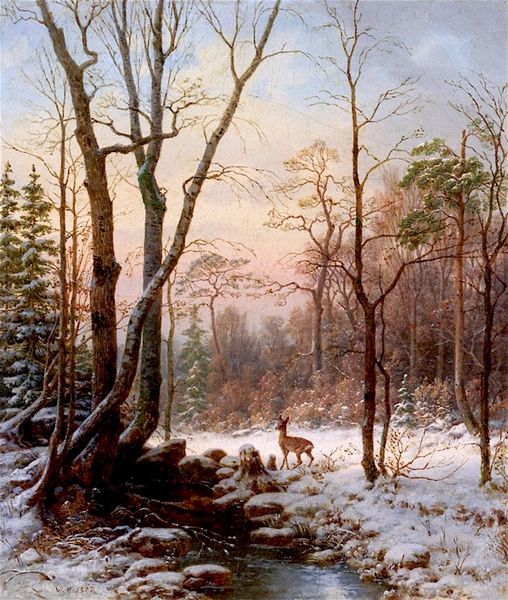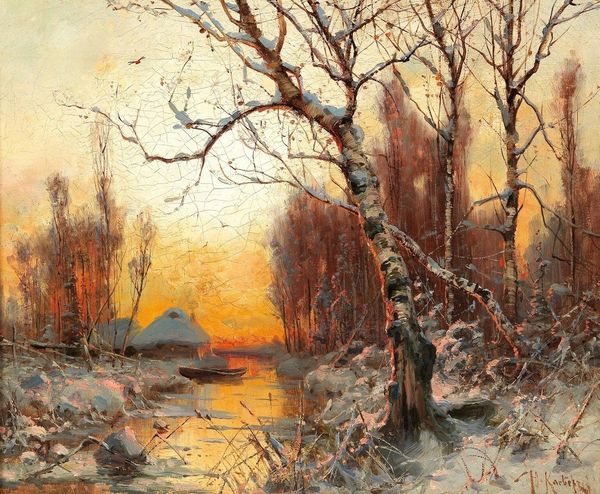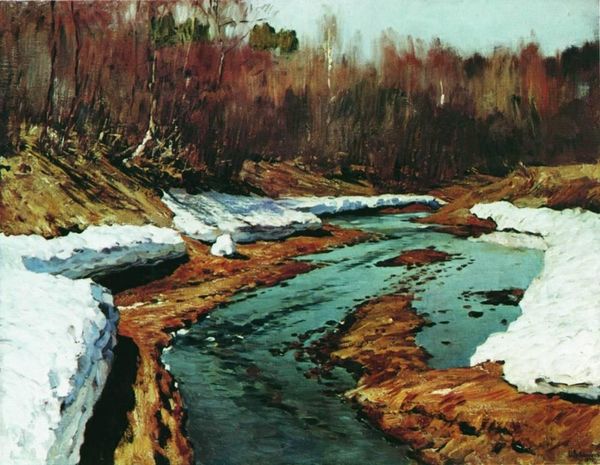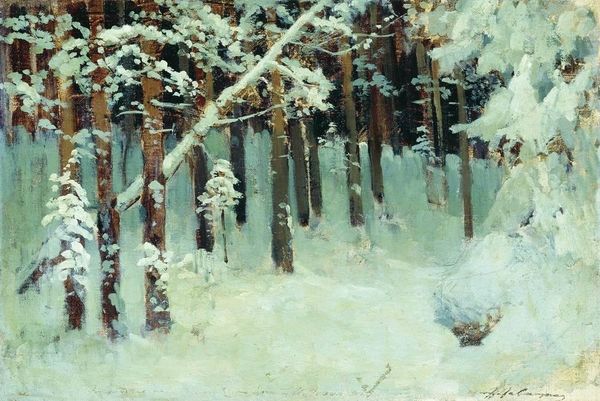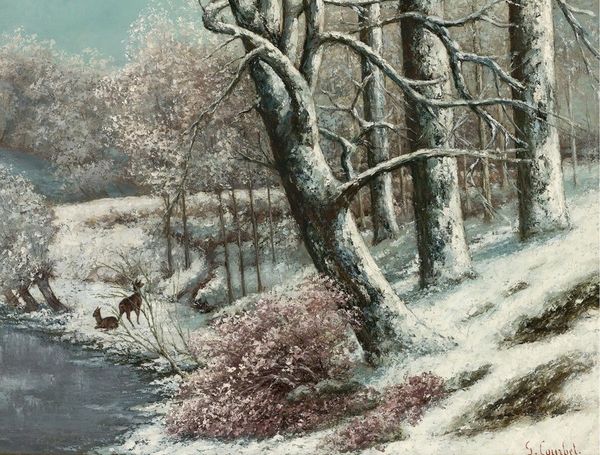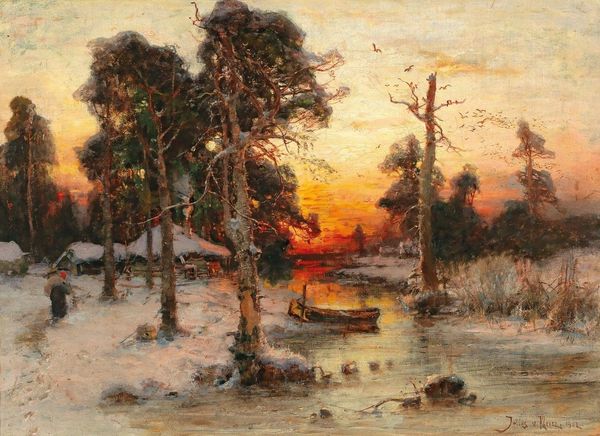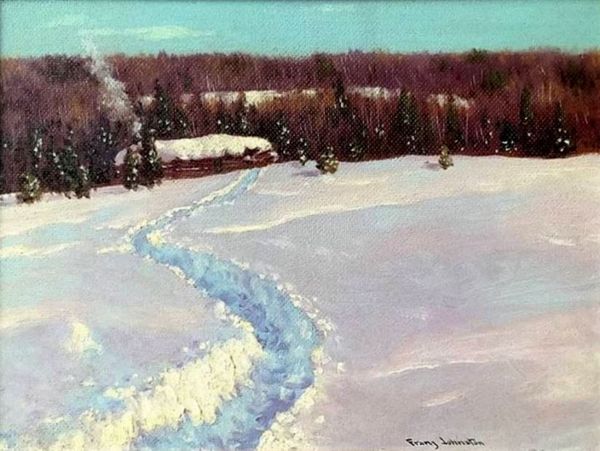
painting, plein-air, oil-paint
#
impressionist
#
painting
#
impressionism
#
impressionist painting style
#
plein-air
#
oil-paint
#
landscape
#
winter
#
impressionist landscape
#
figuration
#
forest
Copyright: Public domain
Curator: This painting, aptly named "In Late Winter," comes to us from the hand of Efim Volkov, a prominent Russian landscape painter. Editor: Oh, it feels like a sigh. That murky thaw, the almost reluctant return of color. Makes me shiver and yearn for a crackling fire all at once. Curator: Precisely! Volkov captures that melancholic beauty so well. Look how he handles the light – soft, diffused, reflecting off the melting snow. It is an outdoor piece painted "en plein-air" in the impressionistic style. Editor: It's interesting, though. Usually impressionism feels so full of movement and vibrancy, doesn’t it? This is almost…still. Like the forest is holding its breath. It is so calm, so close to what I believe to be its bare bones in Winter's grip. Curator: Indeed, that stillness might speak to Volkov's intentions. He was deeply invested in depicting the Russian landscape not merely as a visual spectacle but as a reflection of the Russian soul. Late winter is itself, after all, a transitional moment, promising renewal yet steeped in a certain quietude, a kind of national pause. Editor: Do you think so? I tend to shy away from putting something so…big… like national identity, onto a single painting. But the more I gaze into it, the more I am certain that this landscape embodies resilience. Nature insists on transforming even if it's covered in snow, that much can't be hidden away. You can perceive it's beauty at every turn. I do notice this national quality as you say. Curator: I get your skepticism! It’s crucial not to oversimplify. But in the late 19th century, landscapes like these weren't just pictures. They became potent symbols of national identity, subtly resisting rapid industrialization. By emphasizing the humble beauty of the rural landscape, artists spoke to something enduring, something deeply Russian. Editor: So, a bit of visual nationalism hidden in plain sight. How fascinating, this piece makes a great discussion. I think I'll never look at it the same. I might need a good Russian novel, or at least some black bread, after this. Curator: (chuckles) Perhaps! But that's the magic of art, isn't it? It changes how we see, how we feel, and even what we crave. Thank you.
Comments
No comments
Be the first to comment and join the conversation on the ultimate creative platform.
